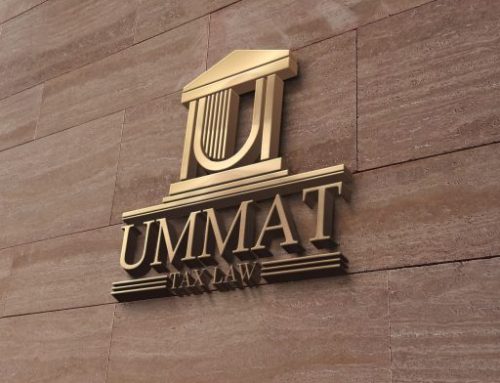John Tavares Owes the Government of Canada $8 Million in Unpaid Taxes
By: Amit Ummat
Ummat Tax Law PC
Barristers & Solicitors
5500 North Service Road, Suite 302
Burlington, ON L7L 6W6
(905) 336-8924
John Tavares, Canadian professional hockey player and captain of the Toronto Maple Leafs, is embroiled in an ongoing legal dispute with the Canada Revenue Agency. The dispute stems from the Minister of National Revenue’s (“Minister”) reassessment of John Tavares’ 2018 taxation year, which increased his employment income by $17,771,862.00 CAD (the “Reassessment”) in accordance with the provisions of the Income Tax Act, R.S.C., 1985, c. 1 (5th Supp.) (the “Act”).
On January 27, 2023, John Tavares, served the Minister with a Notice of Objection to the Reassessment. Subsequently on January 31, 2024, Tavares initiated an appeal before the Tax Court of Canada (“TCC”) pursuant to paragraph 169(1)(b) of the Act. In response to the appeal, the Attorney General of Canada, legal counsel for the Respondent, submitted a reply to the Minister (the “Reply”), disputing the arguments made in the Notice of Appeal. Let’s examine the arguments put forth by the Attorney General of Canada in the Reply.
Resident or Non-Resident of Canada
The first issue under the appeal pertains to whether John Tavares was a resident of Canada at the time he received the 2018 Amount, as such term is defined later in this Article. This issue is important because if the TCC finds that John Tavares was a resident of Canada at the time he received the 2018 Amount, then Article XVI of the Canada-US Tax Treaty is inapplicable in this case.
The Act does not define the term ‘resident’, however Canadian courts have explained that to determine a taxpayer’s residency status, a comprehensive assessment of all pertinent factors must be examined. This includes examining, inter alia, residential ties with Canada, the length of time, purpose, intent, and continuity of the stay while living inside and outside of Canada.
In the Reply, the Attorney General of Canada contended that John Tavares was not a non-resident of Canada as per the definition in subsection 248(1) of the Act when he received the 2018 Amount. The reason for this rested on several grounds, including Tavares’ maintenance of his residential ties with Canada, regular visits to Canada, lack of intent to permanently sever residential ties with Canada, and presence in Canada for 50% or more during the 2018 taxation year.
Signing Bonus Included or Not Included in Income
The second issue under the appeal is whether the 2018 Amount should be included in John Tavares’ income. Before delving into this matter, it is imperative to describe key aspects of the contract executed on July 1, 2018, between Maple Leaf Sports & Entertainment Partnership Ltd., and John Tavares (“Contract”). The pertinent sections of the Contract for our purposes are as follows:
- John Tavares was to receive an annual salary, on a semi-monthly basis, in the amount of $650,000 USD for the 2018-2019 hockey season, and $910,000 USD for each of the subsequent hockey seasons from 2019-2020 to 2024-2025 hockey season; and
- John Tavares was to be paid a signing bonus totaling $70,890,000 USD, allocated/payable as follows:
- $15,250,000 USD on July 1, 2018 (“2018 Amount”);
- $14,999,000 USD on July 1, 2019;
- $11,090,000 USD on July 1, 2020;
- $8,440,000 USD on July 1, 2021;
- $7,040,000 USD on July 1, 2022;
- $7,040,000 USD on July 1, 2023; and
- $7,040,000 USD on July 1, 2024.
The Attorney General of Canada contends that pursuant to subsection 5(1) of the Act, the 2018 Amount should be included in John Tavares’ income for the 2018 taxation year, as it does not qualify as a signing bonus or an inducement payment. The reason is that the 2018 Amount in its entirety was contingent on John Tavares’ fulfilling his employment obligations under the Contract, which included: playing hockey in all scheduled games to the best of his ability, attending training camp, maintaining good physical fitness, and exclusively playing hockey for the Toronto Maple Leafs.
If John Tavares failed to fulfill these obligations it would constitute a breach of the Contract, resulting in John Tavares being entitled to only a proportionate share of the 2018 Amount, and being obligated to repay any portion of the 2018 Amount he received but was not entitled to.
The Attorney General of Canada maintains that the 2018 Amount is characterized as a “salary, wages or other renumeration” received by John Tavares during the 2018 taxation year when he was a resident of Canada. Indeed, pursuant to subsection 6(3) of the Act, the 2018 Amount constitutes remuneration John Tavares’ received for rendering his services, i.e., playing hockey, during his employment with Maple Leaf Sports & Entertainment Partnership Ltd.
Furthermore, the 2018 Amount represents an employment benefit received by Tavares, and as such, falls within the scope of paragraph 6(1)(a) of the Act, necessitating its inclusion in Tavares’ income.
Applicability of Article XVI(4) of the Canada-US Tax Treaty
The third and final issue under the appeal is whether the 2018 Amount was an amount paid “as an inducement to sign an agreement relating to the performance of the services of an athlete” under Article XVI(4) of the Canada-US Tax Treaty. This issue is only relevant if the Court were to find John Tavares a non-resident of Canada when he received the 2018 Amount.
The Attorney General of Canada contends that John Tavares’ is unable to rely upon Article XVI(4) of the Canada-US Treaty, because the 2018 Amount is remuneration from the duties of employment for services he performed in Canada (as explained earlier in this Article). As a result, by operation of section 114, subparagraphs 115(1)(a)(v) and 115(2)(c.1)(ii) and paragraph 115(2)(e) of the Act, the 2018 Amount should be included in Tavares’ taxable income earned in Canada.
Conclusion
The assertions presented in the Reply directly oppose John Tavares’ arguments outlined in the Notice of Appeal. The forthcoming stage in the litigation process will likely involve discoveries, where both parties will strive to provide evidence backing their respective positions. Given the absence of substantial supporting documentation being produced by either party thus far, it remains intriguing to observe the evidence each side will produce. We will keep a close eye on this appeal’s development, providing any notable progress as it comes through.




